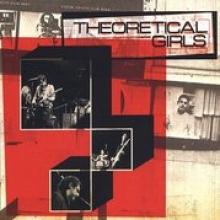After the first crop of punk acts either got signed and stunk or just moved on to other (and perhaps better) endeavors, a crop of its enthusiasts took up the mantle of neigh sayers. Codification was and will remain rampant in any scene and eventually even post-punk, new wave and no wave would be nothing other than a genre tag used to push records on an unsuspecting public no matter how far removed from the original recording dates. That being said, Theoretical Girls represent what attracted most to a punk or weirdo scenes in the first place.
Comprising guitarist Glenn Branca, drummer Wharton Tiers, Jeffrey Lohn on vocals and guitar in addition to keyboardist Margaret DeWys, the band was able to create an extraordinarily music that retained not just the aggression and simplicity of punk, but also the experimentation of jazz.
In mentioning Theoretical Girls, some note on minimal composers is always made. And while that influence was no doubt in each player’s mind while putting together their music, it’s not always plainly evident in the music.
Acute Records first release is a self titled collection from this New York band that includes the scant studio work the quartet did in addition to what sounds like a clutch of live stuffs and perhaps even some demo work.
What’s most interesting about this group when compared to its cohort is the fact that Theoretical Girls didn’t maintain a singular approach to its music. James Chance and the Contortions went in on some funk classics while other acts represented on the Brian Eno produced No New York compilation engendered noise. The Girls, though, move effortlessly between any and all of these concepts including a bit of almost straight punk.
Sonic Youth must have been fans of this, but on the first rendition of “Theoretical Girls” (yes it was the name of the band, a song and this album), the band repeats an endlessly pleasing punk progression with Lohn counting to four over and over again. The song doesn’t go anywhere, but the pacing and the overall jarring effect was nothing less than punk. The tracks second rendition finds the Girls almost in power pop territory. And while a bunch of the other tracks included here have some sort of interesting story behind it, “US Millie,” which was half of the band’s only properly released single, comes off as a lost Krautrock classic.
So while most folks don’t think of the minimalism of Cluster as punk, Theoretical Girls did. And just for that, Branca and company deserve to be enshrined next to the Ramones and the Clash.
